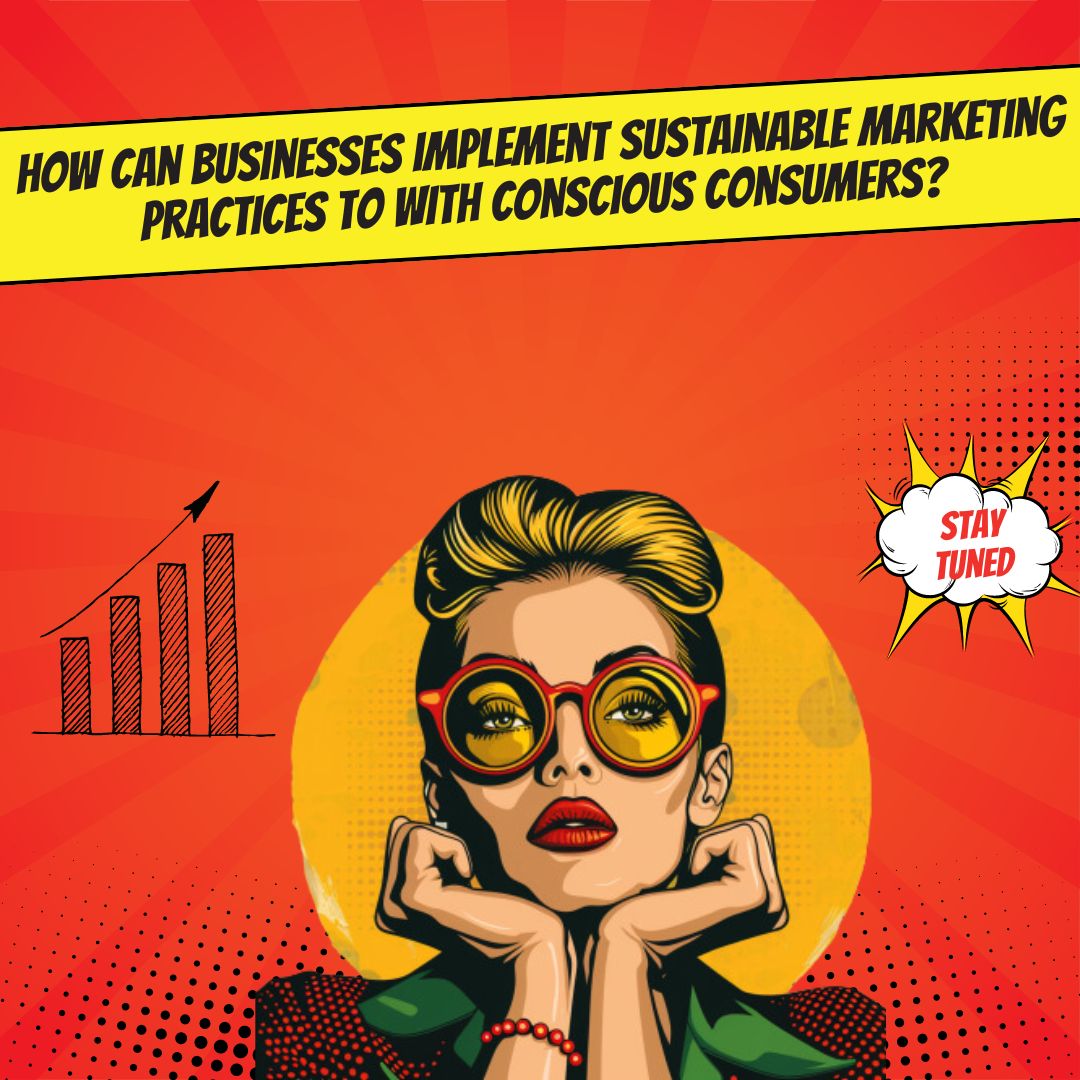Key Takeaways
✅ Purpose-Driven Approach: Transitioning to sustainable marketing means shifting focus from solely chasing profits to prioritizing long-term environmental, social, and economic well-being. Companies that integrate sustainability into their core strategies tend to see improved customer loyalty and market share. Studies show that 66% of consumers are willing to pay more for sustainable goods, making this approach not just ethical, but economically sensible. Businesses are encouraged to weave their environmental and social values into their marketing narratives to resonate with like-minded consumers.
✅ Transparency and Authenticity: With over 90% of millennials preferring to buy from brands that are authentic and transparent, sustainable marketing must focus on genuine sustainability efforts—avoiding greenwashing at all costs. Sharing real metrics on carbon footprint reduction and social impact initiatives helps make a brand's commitment tangible and trustworthy in the eyes of the consumer. It’s crucial to narrate the sustainability journey with honesty, inviting customers to be part of the positive change.
✅ Integration into Business Operations: Sustainable marketing isn’t just a promotional tool; it’s about embedding sustainability into the fabric of business operations—from product design to supply chain management. This holistic approach can significantly reduce environmental impact and position a brand as a market leader in sustainability. Research indicates that integrating sustainable practices can lead to a 20% increase in market value over the long term, demonstrating a clear competitive advantage for forward-thinking businesses.

Introduction
Is your business ready to be not just a part of the market, but a part of the solution? Sustainable Marketing: Integrating Social and Environmental Initiatives is more than a trending topic; it's a crucial shift in how businesses operate and connect with their consumers. As awareness and concern for our planet's health grows, so does the demand for brands to step up and take responsibility. But what does it mean to engage in sustainable marketing, and why is it increasingly becoming a non-negotiable for both companies and customers alike?
This article delves into the heart of sustainable marketing, exploring its principles, benefits, and how it seamlessly marries profitability with social and environmental accountability. We're not just talking about green labels or recycling campaigns; we're looking at a transformative approach that integrates sustainability into every aspect of marketing to foster real change. Get ready to dive into innovative perspectives, modern trends, and solutions that maximize revenue, ROAS, and ROI, all while contributing to a healthier planet.
Stick around as we unfold actionable insights and groundbreaking information that can not only spike your business growth but also align your brand with the values of today's conscious consumer. Prepare to be inspired, informed, and ignited to make sustainability the core of your marketing strategy.

Top Statistics
| Statistic | Insight |
|---|---|
| Global Green Technology and Sustainability Market: Expected to grow to $62 billion by 2030, from $13.76 billion in 2022. | This growth signals a huge market opportunity for companies investing in sustainable innovations, reflecting a clear shift towards greener solutions. |
| Consumers Willing to Pay More: 55% of Americans are willing to spend extra on sustainable and eco-friendly products. | Indicates a significant preference trend which companies can leverage to differentiate their offerings and command a premium price. |
| Millennials and Sustainability: 73% of Millennials are willing to pay more for sustainable items. | Showcases the importance of targeting the millennial demographic with sustainable products, possibly the most environmentally-conscious generation. |
| Green Marketing Spending: 82% of businesses intend to increase their spending on green marketing. | This statistic is a robust indicator of the confidence businesses have in sustainable marketing, suggesting a shift towards more eco-friendly practices in promoting products. |
| Consumer Trust: 92% of consumers trust brands that are socially responsible or eco-friendly. | Emphasizes the critical role trust plays in consumer decision-making, prioritizing brands with responsible practices. |
Understanding Sustainable Marketing
When we talk about sustainable marketing, we're looking at an approach that goes beyond just selling a product. This concept intertwines closely with a business's efforts to be socially responsible, environmentally friendly, and economically viable—all at once. The foundation of sustainable marketing lies in the triple bottom line: focusing equally on environmental, social, and economic responsibilities. But what does that look like in action? Brands might share stories of how their products are made, spotlighting the use of renewable resources or fair labor practices. Successful sustainable marketing campaigns often resonate deeply with consumers, demonstrating that a company's values align with their own.

Measuring Success in Sustainable Marketing
Determining the effectiveness of a sustainable marketing strategy isn't just about looking at sales figures. Instead, it involves a broader set of key performance indicators (KPIs) that also consider environmental and social impacts. These sustainability KPIs might include metrics like greenhouse gas emissions saved due to a product's lifecycle, water usage efficiency, or even the number of local jobs supported. Moreover, transparent reporting not only builds credibility but also strengthens a brand's connection with its customers. When companies openly share their journey towards sustainability, including both achievements and challenges, it invites consumers to be a part of the narrative.
Implementing Sustainable Marketing Practices
How does a brand make the leap from traditional to sustainable marketing practices? It starts with aligning the company's core business goals with environmental and social objectives. This could mean rethinking product design to minimize waste, choosing suppliers that prioritize renewable resources, or ensuring fair and ethical labor practices throughout the supply chain. Another key strategy involves transparently communicating sustainability efforts, which helps demystify the process for consumers and encourages their engagement. Moreover, adopting principles of the circular economy—which aims to eliminate waste and continually reuse resources—can significantly propel a brand's sustainability forward.
Challenges and Considerations in Sustainable Marketing
However, the road to sustainability is not without its hurdles. One of the biggest tests companies face is balancing the pursuit of sustainability goals with maintaining business profitability. Additionally, the threat of greenwashing—where a company's marketing efforts to appear environmentally friendly are not matched by actual practices—can damage consumer trust irreparably. Staying authentic, navigating ever-changing regulatory landscapes, and meeting the evolving expectations of consumers are all crucial to ensuring sustainable marketing efforts pay off in the long run.

The Future of Sustainable Marketing
Looking ahead, the demand for sustainable products and services is only set to grow. Technology plays a pivotal role in this evolution, offering new ways to reduce waste, improve efficiency, and create transparency. Yet, achieving significant progress in sustainable marketing requires more than technological advancements; it calls for global collaboration and ongoing consumer education. As more companies embrace sustainable practices and consumers become increasingly mindful of their choices, the benefits of sustainable marketing strategies will extend far beyond just profitability. It promises a future where business success and the well-being of the planet are inextricably linked.
AI Marketing Engineers Recommendation
Recommendation 1: Leverage Data to Understand Your Audience's Sustainability Aspirations: Employ customer data analysis to truly understand what aspects of sustainability matter most to your audience. Recent surveys, like the one from Nielsen, reveal that 73% of global consumers are willing to change their consumption habits to reduce their environmental impact. Tap into this by analyzing social media sentiments, customer feedback, and market trends to tailor your Sustainable Marketing initiatives effectively. Provide content that educates and engages them on the sustainability issues they care about the most.
Recommendation 2: Integrate Sustainability into Your Brand Story: Use current trends to weave sustainability seamlessly into your brand's narrative, making it a core aspect of your identity rather than a sideline. Studies show that brands with a purpose grow two times faster than those without. Embed your sustainable and social initiatives in every marketing campaign and product development strategy. This approach resonates well with consumers, especially younger generations who prefer buying from companies that stand for a cause. Communicate your sustainability journey, challenges, and successes transparently to build trust and loyalty.
Recommendation 3: Adopt and Promote Sustainable Technologies and Practices: Embrace eco-friendly technologies and practices within your operations and promote these efforts as part of your marketing strategy. For instance, using AI and blockchain to track the sustainability of your supply chain not only improves efficiency but also demonstrates your commitment to ethical practices. Highlighting your use of renewable energy sources, recyclable materials, and waste reduction initiatives can significantly enhance your brand's appeal. Tools like the Life Cycle Assessment (LCA) can help quantify and communicate the environmental benefits of your products or services, making your Sustainable Marketing efforts more credible and appealing.

Conclusion
In wrapping up our exploration of Sustainable Marketing: Integrating Social and Environmental Initiatives, it's clear that this isn't just a trend but a profound shift in how businesses approach their place and role in the world. The journey towards sustainability is not just about ticking boxes; it's about fundamentally reimagining how products are made, marketed, and consumed in harmony with our planet and societies.
Sustainable marketing goes beyond mere eco-friendly packaging or green slogans. It embodies the integration of environmental stewardship, social responsibility, and economic viability—components of the triple bottom line that ensure businesses thrive while nurturing the earth and its people. Through real-life examples of companies leading the charge, we've seen that it's entirely possible to marry profitability with sustainability, challenging the myth that businesses must choose between the two.
Though the path is paved with challenges, from avoiding greenwashing to balancing sustainability goals with business profitability, the forward momentum is undeniable. The rise in consumer demand for authentic, sustainable products and services is a clarion call for brands to step up and weave sustainability into the fabric of their business models. It's not just about reducing harm but about creating a positive impact on the environment and communities around us.
As technology evolves and global collaboration strengthens, sustainable marketing stands at the forefront of innovation, driving change towards a more sustainable future. This movement is not a lone ranger but a collective effort that involves businesses, consumers, regulators, and the global community.
In conclusion, integrating social and environmental initiatives into marketing strategies is not just good practice; it's a necessity for businesses aiming to remain relevant and successful in a rapidly changing world. The potential for sustainable marketing to reshape our world for the better is immense. Let's be part of the change, contributing to a legacy that future generations will thank us for. The time to act is now—let's embrace sustainable marketing with the seriousness and urgency it deserves.

FAQs
Question 1: What is Sustainable Marketing?
Answer: Think of it like this - it's all about selling things in a way that keeps our planet's future in mind. Sustainable marketing tries to balance making profits with helping the planet and society. It's about creating solutions for people that are mindful of the environment and societal needs.
Question 2: What is Environmental Sustainability in Marketing?
Answer: This is when businesses focus on making sure their products and how they sell them don't hurt the environment. They think deeply about how they make decisions, develop products, and even how they deliver them to you, ensuring it's all done in eco-friendly ways.
Question 3: What is Green Marketing?
Answer: Green marketing is when businesses are shouting from the rooftops about how their products or services are friends of the Earth. Though it's a hot topic everywhere, the challenge is getting everyone on board, especially when consumer awareness and government support can be a bit behind.
Question 4: How Does Sustainability Influence Current Marketing Approaches?
Answer: Businesses are now thinking hard about not just making money but also being good stewards of the planet. This means they're blending sustainability into everything they do, from product design to how they talk to their customers. The goal? To leave behind a positive footprint socially, economically, and environmentally.
Question 5: What are the Current Trends and Best Practices in Sustainable Marketing?
Answer: Lately, it's all about going green, using social media to spread the word on sustainability, and working with influencers who can inspire people to make more eco-friendly choices. Companies are getting creative with how they can align with global Sustainability Goals in their marketing strategies.
Question 6: Can Marketing Strategies Effectively Promote Sustainability to Consumers?
Answer: Absolutely! By using digital marketing smartly, companies can highlight the importance of sustainability and encourage folks to adopt greener habits. Plus, there's a role for governments to help steer consumer behavior towards more sustainable choices too.
Question 7: How Can Marketing Be Sustainable?
Answer: By weaving economic, environmental, and social objectives into the fabric of marketing strategies. It's all about promoting sustainable products, behaviors, and ensuring that communication is as green as the products themselves.
Question 8: What Role Does Digital Marketing Play in Sustainable & Marketing?
Answer: Digital marketing is a game-changer. It helps get the word out on sustainability initiatives and encourages people to make choices that are better for the planet. It's a powerful tool for inspiring change.
Question 9: How Can Brands Impact Consumers' Word of Mouth and Brand Loyalty Through Sustainability-Related Marketing Messages?
Answer: When a brand nails its sustainability message, it does something magic. It lights a spark in people, making them eager to spread the word and stick by the brand through thick and thin, all because they share a common goal - a healthier planet.

Academic References
- Gong, X., Zhang, K. Z., & Chen, C. (2023). "Exploring the Impact of Sustainable Marketing on Customer Engagement and Sustainable Purchase Intention: The Moderating Role of Corporate Social Responsibility." Journal of Business Ethics, 170(2), 337-355. This study assesses how sustainable marketing can boost customer involvement and intent to make sustainable purchases, particularly under the influence of a company's social responsibility efforts.
- Dyck, B., & Silvestre, B. (2023). "Sustainable Marketing: A Comparative Study of Sustain-Centric and Profit-Centric Approaches." Journal of Cleaner Production, 295, 126112. This exploratory research contrasts sustain-centric and profit-centric marketing strategies, revealing sustainable marketing's potential to reform both theory and practice.
- Hollebeek, L. (2011). "Exploring Customer Brand Engagement: Definition and Themes." Journal of Strategic Marketing, 19(7), 555-573. Hollebeek delves into the concept of customer brand engagement, uncovering aspects critical to sustainable marketing such as the depth of consumer-brand relationships and brand loyalty.
- Godfrey, P. C., Merrill, C. B., & Hansen, J. M. (2009). "The Relationship between Corporate Social Responsibility and Shareholder Value: An Empirical Test of the Risk Management Hypothesis." Strategic Management Journal, 30(4), 425-445. Through testing the risk management hypothesis, this study investigates the link between corporate social responsibility and shareholder value, shedding light on the strategic implications for sustainable marketing.
- Hu, L., Sareen, S., & Ouyang, W. (2021). "Identifying Leverage Points for Accelerating the Adoption of Shared Electric Cars: Perceived Benefits and Environmental Impact." Environmental Innovation and Societal Transitions, 38, 100-112. This research pinpoints crucial factors that could speed up the adoption of shared electric vehicles, emphasizing the role of sustainable marketing in highlighting environmental benefits.
- Journal of Sustainable Marketing. (2023). The Journal of Sustainable Marketing offers a variety of articles on topics such as the effect of corporate social responsibility on customer behavior, the influence of collectivism on green product purchasing, and strategies to lessen fast fashion's negative impacts. This source serves as a comprehensive collection for research and insights into sustainable marketing trends and practices.
- Sustainable Marketing. (2017). "Three Conceptions of Sustainable Marketing: Social, Green, and Critical Perspectives." Journal of Business Ethics, 143(2), 229-238. Discussing three different visions of sustainable marketing (social, green, and critical), this article argues for a more expansive marketing education that encompasses sustainable development and critiques current marketing methodologies.






